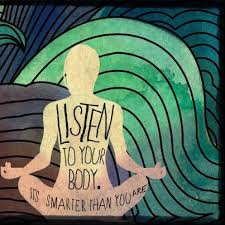 We’ve all heard the phrase ‘you are what you eat’, but what about when you eat? There is a lot of interesting research that suggests when we eat and how organized we are with our meal schedules can affect our weight. Let’s start with some research you’ve probably heard of: breakfast. It’s the most important meal of the day many claim, one which helps students perform better in school. Research also shows that skipping breakfast is associated with increased prevalence of obesity. The thought is that skipping breakfast increases hunger throughout the day, making us overeat at our next meal. Data also suggests that eating breakfast helps minimize impulsive snacking. Not everyone is convinced that this is the case, however. Of course what we are eating for breakfast is a more critical factor. For example, a veggie egg scramble on whole wheat toast vs. a grande mocha and maple nut scone from Starbucks, (containing a 770 calories and 59 grams of sugar - almost 15 teaspoons! - together). What about meal frequency? Is it better to eat frequent, small meals or eat three square meals a day? The jury is still out, but compelling evidence does show that eating multiple, small meals can suppress hunger and overall serum insulin concentrations. This is important news as high insulin levels are associated with obesity and cancer. One other interesting finding regarding the when is in those of us who eat late at night. Data suggest that the consumption of carbohydrate-rich foods in the late evening increases glycogen levels in our muscles. Unless this stored glycogen is burned as fuel, it will ultimately be stored as fat. Therefore, consumption of late-evening meals with carbohydrate-rich foods may also be related to obesity. In addition, eating late at night also affects the circadian rhythms of the hormones leptin and ghrelin, which affect hunger and satiation (or fullness). Leptin signals satiation thereby decreasing food intake while ghrelin induces hunger, affecting meal initiation. Eating late at night (as well as being sleep deprived) turns leptin down and raises ghrelin up, a bad combination for those trying to manage their weight. So…perhaps the when isn't the entire story, but being conscious of it can be a powerful tool for weight maintenance. Don’t skip breakfast or other meals and try to eat every 2-4 hours. Take inventory of your eating and sleep habits and focus on meals that keep your blood sugar in balance (and don't forget the power of Sugar Blockers!)
2 Comments
 Have you ever watched with envy a child offered ice cream, take a bite or two then push the bowl away? Children are naturally intuitive with their eating, but we lose this skill with age. Cultural and social factors influence how much, when and why we eat, along with our lack of presence. Children are good at intuitive eating because they live in present time. They aren’t thinking about what they ate today or yesterday or what they’ll eat later or even how the cook feels - they’re only focused on eating when they are hungry, what they want to eat now, and the amount of food to satisfy their hunger for that moment. The Clean Plate Club is an example of not eating intuitively and a new study reveals that adults fall victim more than children, as we would expect. Researchers analyzed almost 1,200 diners in eight countries, including the United States, Canada, France, Taiwan, Korea, Finland, and the Netherlands. Despite differences in gender and geography the study found that adults finish 92 percent of what's on their plates while kids eat just 59 percent. Other highlights from the study revealed that men are more likely than women to trust their bodies to tell them how much to eat. In addition, it was found that intuitive eating was lower among those with a higher BMI and that intuitive eating was associated with fewer disordered eating behaviors. Are you a member of the Clean Plate Club? Have you lost your ability to listen and respond to your body’s natural hunger and fullness signals? Well, fear not as there is considerable evidence that intuitive eating skills can be learned (or re-learned). Often called "mindful eating” intuitive eating is also an effective weight management strategy and we can start today. Using smaller plates and bowls is one solution as they "trick" our brain into thinking we've eaten more. But really, mindful eating begins with sitting down at a table with the TV off. Remove all distractions, and focus on your meal. Setting the table and lighting a candle can help as well. Mindful eating involves honoring the sensations of hunger and fullness and giving ourselves permission to eat. When we tell ourselves that we can't or shouldn't have a particular food, it can lead to intense feelings of deprivation that build into uncontrollable cravings and, often, binging. We can pause in the middle of a meal and ask ourselves how the food tastes, and what our current fullness level is. Doesn’t food taste 10 times better when you’re hungry anyhow? If we decide that we are no longer hungry, give thanks to Tupperware, to-go boxes, and refrigeration! And remember, it takes up to 20 minutes for our gut to communicate with our brain that we're full, so slow it down a bit :) Mindful eating also involves honoring our feelings without using food. Food is often used as a crutch when dealing with anxiety, loneliness, boredom, and anger, but food won't fix any of these feelings. It may comfort for the short term, distract or even numb us, but food won't solve the problem. What other activities can we enjoy or how else can we manage these emotions? We can also encourage mindful eating in the children that we touch. Research tells us that mothers who eat intuitively use less controlling feeding practices with their children and that parental monitoring and restriction of food intake can negatively impact our children’s BMI, emotional eating, and Intuitive Eating Scale scores. The more we as parents and caregivers can trust our own bodies, the more easily we can let children instinctively trust theirs. The journey towards intuitive eating is a process one engages in overtime. It may even pose more of challenge for those who have a long history of dieting, self-imposed food restrictions, or body image concerns. With time, practice and self-compassion we can all re-learn to eat intuitively and pass this gift to those around us. Do you practice intuitive eating? What are your experiences and bits of advice that can help us on the path to well-being? |
AuthorHello and welcome! My name is Andrea Notch Mayzeles. I am a Certified Health Education Specialist, Mom, and Master of Public Health dedicated to the path of well-being. As a wellness professional I am committed to continued learning and am here to share research, recipes and musings on health, psychology, personal development, and parenting. I hope you enjoy! Categories
All
|

 RSS Feed
RSS Feed